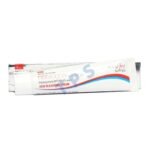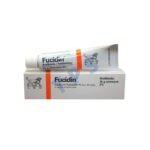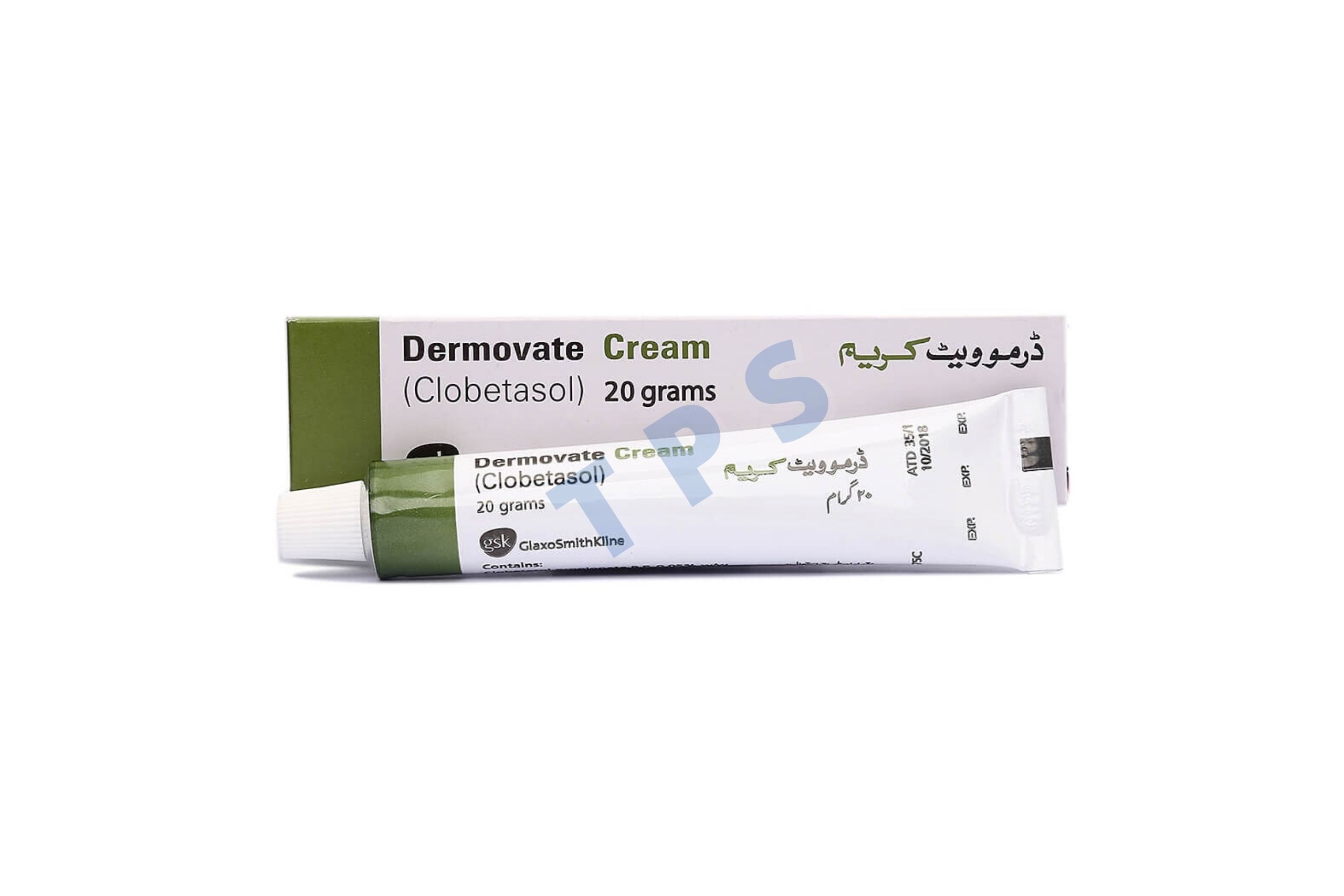

Dermovate Cream 20G
₨ 199 Original price was: ₨ 199.₨ 189Current price is: ₨ 189.
Dermovate Cream 20G Indications
Dermovate Cream 20G is primarily indicated in conditions like Chronic hyperkeratonic eczema, Chronic hyperkeratonic psoriasis, Contact dermatitis, Discoid lupus erythematosus, Keloid scarring, Lichen planus, Localized bullous disorders, Photosensitivity, Pretibial myxoedema, Recalcitrant eczemas, Vitiligo.
Contraindication
Dermovate Cream 20G is contraindicated in conditions like Acne vulgaris, Rosacea,Impetigo, Tinea corporis, Hypersensitivity,Napkin eruption, Perioral pruritus, Primary skin infections, Gravitational ulceration, Infestations.
Side Effects
The severe or irreversible adverse effects of Dermovate Cream 20G, which give rise to further complications include Perioral rosacea, Psoriasis.Dermovate Cream 20G produces potentially life-threatening effects which include Cushing’s syndrome, Diabetes, Hypertension, Adrenal suppression, which are responsible for the discontinuation of Dermovate Cream 20G therapy. The symptomatic adverse reactions produced by Dermovate Cream 20G are more or less tolerable and if they become severe, they can be treated symptomatically, these include Striae, Hypersensitivity reactions, Hypertrichosis, Pigmentation, Superficial blood vessels dilatation, Superficial blood vessels thinning, Dermal atrophy, Epidermal atrophy.
Warnings
Clobetasol should be used with caution in patients with active tuberculosis infection of respiratory tract or in untreated fungal, bacterial or systemic viral infections. Corticosteroids should only be used systemically with great caution in the presence of congestive heart failure (CHF), recent myocardial infraction (MI), hypertension, diabetes mellitus, epilepsy, glaucoma, hypothyroidism, liver failure, osteoporosis, peptic ulceration or renal impairment. Children may be at increase risk of some adverse effects, corticosteroid causes growth retardation and prolonged use is rarely justified. Passive immunization is recommended to non-immune patients who do come in contact with chickenpox or measles. Live vaccine should not be given to patients receiving high dose systemic corticosteroid therapy nor for atleast 3 months afterwards, killed vaccine or toxoids may be given, although the response may be attenuated. During prolong treatment with corticosteroids, patients should be examined regularly, sodium intake may need to be reduced and calcium and potassium supplement may be necessary. Patient should carry cards given full details of their corticosteroid therapy. Avoid use during pregnancy. Use nasal steroids with caution until healing has occurred.


Reviews
Clear filtersThere are no reviews yet.